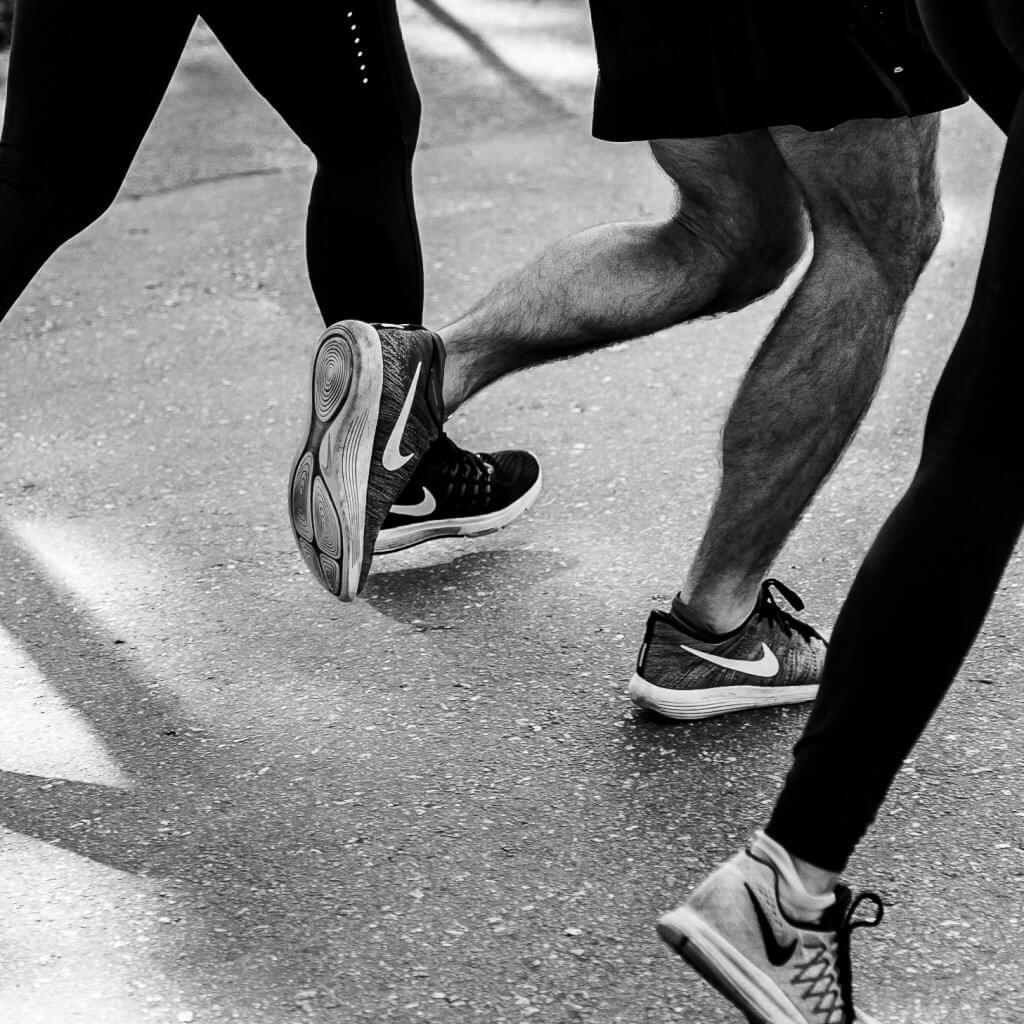How To Avoid The Runner’s Gut-Wrenching Feeling

It’s every runner’s worst nightmare. Mid-run your stomach starts churning and you know it’s only a matter of time before you need to go. Instead of running along the trail or road, you are left running towards the nearest bathroom. For others, it means running through gas, nausea and stomach pain. This is runner’s gut and it among the most gut-wrenching feelings to have during a run.
“Runner’s gut,” also called “gut rot” are terms used in the running world to identify GI distress. It describes that gut-wrenching feeling in the pit of the stomach that basically feels if the runner got kicked in their stomach during a high-intensity or a long run. Symptoms include stomach cramps, nausea, vomiting, gas, stomach aches, and diarrhea. This is why it is also referred to as “runner’s trots.” Many report having symptoms like acid reflux.

What Causes Runner’s Gut?
The digestive system slows down during a run. And once the run is over, things start moving along, which is why many runner’s experience bowel movements post run. However, one study found 62 percent of runners reported to having to during a run because of a case of runner’s trots.
Runner’s gut happens because of distress to the gastrointestinal tract. Medical professionals aren’t exactly sure on why the trots happen, but we do know there are a few culprits behind runner’s gut.
Consuming acid foods and drink is a major reason behind runner’s git in a day before or of a long run. This includes the more obvious like oranges or orange juice, as well as eggs, milk, white bread, coffee, and alcohol. Also causes behind the gut issues is high fiber foods, as well as fat and protein.
As important as it is as to what we are eating before that long or intense run is when we are eating. Eating right before this run isn’t a great idea. The body needs 2-4 hours to properly digest the meal.
Being dehydrated is also a major factor. Runners should properly hydrate before, during and after a long run.
Drinks that are high in carbohydrates (sugar) also can cause stomach issues during a run because they draw extra water to the stomach. This is why some runners can stomach sports drinks during a run, while others can. However, the standard sports drink has about 4 percent carbs and is fine.
The same is true for all those sugary gels and sports beans. Runners need to glucose during a long run to fuel the body, but too much sugar can result in stomach issues. This is why these need to be consumed with water.
Other causes include medical conditions linked to GI distress. This includes Coeliac disease and irritable bowel syndrome. Those with GI illnesses may experience symptoms during their long run.
When Does It Happen?

According to a study published in 2009, 50 percent of runner’s have experienced runner’ gut before. And it usually happens during the higher intensity or longer run. As blood is working to provide oxygen to the muscles during exercise, the flow is going away from the GI tract. The harder the workout, the more blood is redirected. This can leave the stomach feeling queasy.
This is why runners are more advanced or elite runners are more at risk for runner’s gut than those who are just starting out slowly or recreational runners. It’s also more common in younger athletes and those with anxiety.
Runner’s gut occurs during the run, but symptoms should subside after with proper hydration and a nutritious meal. Some might need time for their stomach to “rest” before eating post-run.
Those with runner’s trots are either left needed the bathroom as soon as possible or have a bowel movement post-run. Diarrhea should not last longer than 24-hours.

How To Prevent Runner’s Gut?
The main way to prevent runner’s gut is to focus on diet especially in the days leading up to a long run. Look to consume carbohydrates leading up to the run and stay away from protein before which can be harder to digest. Avoid caffeine pre-run and limit sugars. Instead, drink lots of water and electrolytes.
Address any GI illnesses like irritable bowel syndrome with a doctor to be able to control it better.
Taking an antacid like Tums to ease a potential upset stomach.
During a run make sure to keep up hydration with using gels or sports beans.
Keep a food diary or pre-run meals and nutrition during a run to try to find what is the main reason behind stomach discomfort.
Sources
- , Runner’s Gut, Health Website
- , Want to Avoid Runner’s Gut?, Running Website
- , 5 Tips to Prevent Gastrointestinal Distress , Running Website
- , The impact of physical exercise on the gastrointestinal tract., Health Organization Website
- , Runner’s Diarrhea, Health Website
- , Runners' diarrhea. Different patterns and associated factors., Health Organization Website
Latest Articles
 Is Running on a Treadmill Easier Than Running Outside?Runners have their own preferences, whether it is treadmill running, running outside on the road, or exploring trails. So...
Is Running on a Treadmill Easier Than Running Outside?Runners have their own preferences, whether it is treadmill running, running outside on the road, or exploring trails. So... Is It OK to Use Trail Running Shoes on the Road?While trail running shoes can be used on roads, especially in situations where a runner encounters mixed terrains or pref...
Is It OK to Use Trail Running Shoes on the Road?While trail running shoes can be used on roads, especially in situations where a runner encounters mixed terrains or pref... How to Fix Sore Quads After Running?Rest, ice, gentle stretching, and over-the-counter pain relievers can help soothe sore quads after running. Also, ensure ...
How to Fix Sore Quads After Running?Rest, ice, gentle stretching, and over-the-counter pain relievers can help soothe sore quads after running. Also, ensure ... 10 Fruits With The Most Electrolytes to Replace Sports DrinksThese fruits are high in electrolytes such as potassium, magnesium, and calcium, essential for hydration, muscle function...
10 Fruits With The Most Electrolytes to Replace Sports DrinksThese fruits are high in electrolytes such as potassium, magnesium, and calcium, essential for hydration, muscle function...

